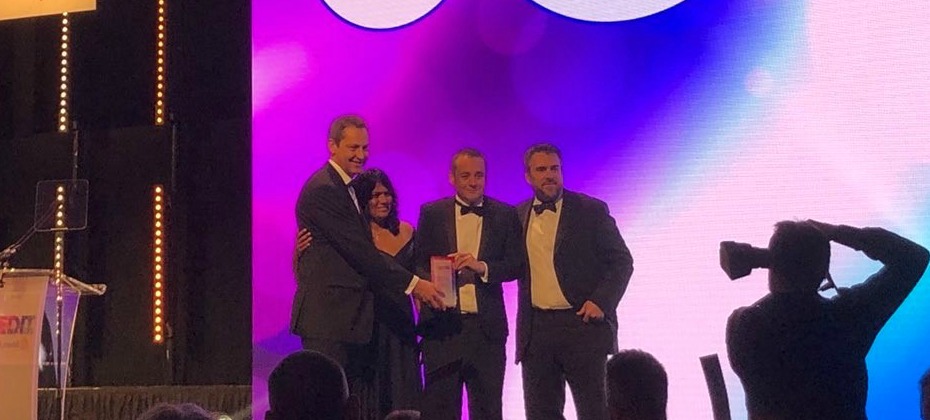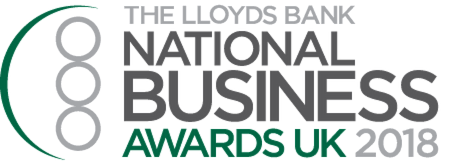News
What’s happening in our industry and what we’re doing

At Experian, we are committed to finding new, innovative ways to deliver better outcomes for our clients and their customers. With this in mind, we are delighted to announce that we have now been granted approval to supply Open Banking and PSD2 services by the FCA. The accreditation allows Experian to help people benefit from the Open Banking initiative through a new suite of products so that consumers can share data in a secure and compliant way. This will complement Experian’s existing credit bureau services. The overarching aspiration of Open Banking is to level the playing field by offering greater choice through new products – promoting greater transparency about the benefit and value of these products in the process. This accreditation from the FCA underlines our commitment to support Open Banking for the benefit of both people and organisations. One bank has already signed-up to use our Open Banking platform and we’re running several proof-of-concepts with other clients, so they can explore a range of innovative new services. Open Banking will help people to prove they can afford products, even if they have a limited credit history. The development of insightful mechanisms to manage finances and simplify applications, for everything from financial products to rented accommodation, will also reduce the time and effort required. When people choose to share bank account information with financial service providers they can receive the most appropriate products, improved services and better deals. It will be a useful tool for organisations to ensure they only lend people and small businesses what they can afford to repay. And it will be invaluable to price comparison websites, brokers and background checking providers. Open Banking will also help lenders to meet FCA regulatory obligations in affordability and reduce costs when processing applications. Adopting new data assets will be easier from both a technical and consumer support perspective. The UK is at the vanguard of a global shift in data sharing. Having a dynamic economy and particularly a dynamic financial services sector, is going to be a crucial asset as we navigate our way through social and economic changes anticipated in the years ahead.

Experian MicroAnalytics has surpassed a record 5 billion credit offers, demonstrating our commitment to helping people in emerging markets create credit profiles and improve financial well-being. In emerging markets around the world, people have limited access to financial products, especially credit. At Experian MicroAnalytics we’ve developed a sustainable solution to provide billions of people with access to financial products, easily accessed through their mobile phones, unlocking the power of alternative data in countries across Latin America, Asia, Africa and beyond. “We’re thrilled to have extended over five billion credit offers,” said Elio Vitucci, CEO of Experian MicroAnalytics. “2017 was our fastest-growing year, and we are now extending over 270 million credit offers every month. Our goal is to help people in emerging markets build a strong financial identity. We build financial identities using mobile phone behavioral data, one of the richest sources of customer insight, and unlock an initial set of financial products. As customers use these products, they strengthen their financial identities and obtain access to an increasingly wider set of financial services.” While only a minority of people in emerging markets have access to banking services and even fewer have access to credit services, the vast majority have a mobile phone, most on a prepaid plan. Experian MicroAnalytics partners with mobile network operators around the world, using mobile behavioral data to start creating initial financial identities for people. With these financial identities, customers can start to gain access to simple but useful financial products, such as airtime credit. As customers continue to take and repay their borrowed airtime credits successfully, they strengthen their financial identities and progressively unlock a wider, more complete set of financial services. This creates a virtuous circle, where in time customers graduate to a full set of financial products. “We help consumers in emerging markets to build a financial identity, unlocking access to financial products such as loans, credit cards, insurance and more, all available via their mobile devices,” Vitucci added. “These financial products fuel economic development, stimulate growth and have a positive impact on the quality of life for billions of people.”

What would your reaction be if you were told you were one of the four million people in the UK who had a ‘thin file’? Justifiably, your first questions might be to ask what that is and why it matters. A person has a ‘thin file’ when there is limited financial information available about them, which means usually they have a lower credit score and fewer options available when it comes to accessing financial services. Research we carried out earlier this year found 1.2 million people with thin files are in groups whose household disposable income is forecast to fall in the coming years. As a credit reference agency, responsible for helping lenders to make informed decisions about their customers, the statistics are clear in showing there is work to be done. The commitment to address this issue is part of the reason why Experian was recognised for raising Consumer Awareness in Credit at the Credit Awards 2018. How can we help lenders to better understand the four million people in the UK who, at the moment, struggle to access mainstream financial services? For many people, a typical credit report may contain a bank current account, a couple of utility suppliers, a credit card and perhaps a mortgage. But what about those who haven’t opened a bank account, pay for their electricity and gas using a top-up meter and live in rented accommodation? How can we work with mainstream lenders so they can better understand these customers, and as a result, make informed decisions? Innovation is the only answer. At Experian, we believe finding new sources of data is the key to delivering better outcomes for people who have thin files. Our work with The Big Issue Invest on the Rental Exchange, which will mean 1.2 million tenants see their rental payments on Experian credit reports for the first time, is a great example of expanding our perspective on the regular payments people already make. By sharing this information with lenders, it opens up new possibilities for tenants across the UK. Our research on thin files has accurately sketched the issue in front of us, and we are making progress in raising awareness among consumers about how they can improve their credit profile – even easy, free choices such as registering to vote. Engaging with your financial information is the first step to improving it. Our challenge is now to find more sources of data which will allow lenders to recognise potential customers who, up until now, they have been unable to support. But more than that, to offer the analytics which turns data into an invaluable resource when making decisions.

There’s no escaping the fact that data is universal; enabling our choices, fuelling our economy, informing decisions and shaping our ideas. It’s influence, driven and shaped by the digitalisation of our culture, is only set to expand as we enter the next decade. As the world becomes ever more connected, the sheer volume of available data will continue to grow at a substantial rate. So too will the range and variety of that data. With that comes huge opportunity for organisations to use data-driven solutions to not only deliver better outcomes for their customers, but take on some of the biggest challenges in society. At Experian, we believe data has the power to change the world for the better, and remain committed to creating new ways to drive innovation for the benefit of everyone. That’s why we’re proud to sponsor the very first ‘Data Excellence Award’ at the National Business Awards in November, championing the best examples of those working at the forefront of data and analytics. The ‘Experian Data Excellence Award 2018’ is designed to recognise organisations that are unlocking the power of data to create opportunities for people, businesses and society. If you understand that the value in data goes far beyond regulatory compliance, this is the award for you. It’s hugely exciting to be part of this year’s awards and we are looking forward to seeing some high-quality entries showcasing data excellence. Interested? Then visit the National Business Awards website for more information.

Today we announced our results for the last financial year. The results and the business growth are strong, and a reflection of the actions we have taken to build our success. While we posted some very good results – 8% total revenue growth for the year is great – but it is the people, the strategy and the execution behind those numbers that we are most proud of. In recent years, we intentionally set a course that started with a brand promise to power new opportunities for our clients while creating a better tomorrow for consumers and society. In the last year, towards our quest to achieve that promise, we have made significant progress: We have invested in technologies like API and analytical sandboxes to help us better serve clients worldwide and effectively and safely manage the data and decisioning tools that help our clients succeed; We have made key investments to add new sources of data – including the acquisition of Clarity Services in North America and our continued strategy to look at mobile phone data in EMEA and Asia Pacific to help those who are excluded from the traditional financial system; We have introduced new products for consumers that help them better protect their identities and help them effectively manage their financial profile and credit standings to help ensure financial access in today’s credit economy; and We have created innovations such as our “Text for Credit” offering, which not only makes it easier for consumers to have a seamless credit application process, but it also enables lenders to have a more productive relationship with consumers who are looking for loans. Those are just some of the efforts that underscore our financial results. But more important than the positive results is the fact that we achieved this growth while also staying true to our brand promise. We are doing great things around the world – for businesses, for people and for society. The possibilities and potential of data have never been more exciting or life-enhancing – and our belief remains that data is central to how we all live and has the potential to transform all our lives for the better. The work our nearly 17,000 employees are doing – and have been doing – is indeed transformational. And that is one result for which we couldn’t be prouder.

I am delighted to be able to share the exciting news of Experian’s intended acquisition of ClearScore. By combining the experience and strength of our global organisation with those of a successful and rapidly scaling business, it’s our aim to create the most compelling destinations for consumer finances in the UK. Today’s announcement is the first step in delivering a pipeline of future products and services that will further improve consumer choice and access to credit in the UK and beyond. Consumer digital behaviour is rapidly changing the way we all access financial services. At Experian, we’re introducing a range of new services that meet the demands of this changing marketplace, helping people to manage their finances in a simpler, faster and more affordable way. Whichever device people prefer, at any given time, they will be able compare offers on credit cards, loans and mortgages to see which product best suits them, helping them to plan and better manage their financial lives. Like us, ClearScore is a leader in digital finances. It’s an incredibly dynamic organisation, with a large, enthusiastic and engaged group of users. Since its launch in 2014 the business has grown rapidly to more than six million users across the UK and South Africa access to a free credit report and scores. It is our intention to maintain the two brands alongside each other – both ClearScore and Experian. We want to offer services that appeal to the widest possible range of people, and each of these successful identities has a role to play in doing that. At the same time, by bringing ClearScore into the Experian family, we’ll be able to combine our skills and expertise to better enhance the consumer experience. Together we’ll accelerate the development of new, innovative products and services for both brands, leading to a better choice for people across the UK and beyond. Justin Basini, co-founder and CEO of ClearScore, has reiterated the importance of the acquisition: ClearScore is excited to join Experian in due course and to begin a new stage in our incredible journey. We will catalyse positive change for consumers as we combine the businesses and build a global business. It allows ClearScore to deliver on our mission - to help people sort their money - even more effectively. We will be better able to scale, more efficiently, with more resources at our disposal and this will allow us to deliver more for the people who matter most to us - our users. Experian is the world’s biggest credit information company, operating in 37 countries around the world, giving us a much bigger stage upon which to build ClearScore. As is common in a deal such as this, the agreement is subject to regulatory approval. Once that’s concluded, we’ll be able to talk in more detail about how and why this combination will help both Experian and ClearScore to achieve our shared goals. Namely, providing more choice and greater convenience to individuals who want to access personal financial products at the best prices, while also making it easier for businesses to connect with the right customers. In the meantime, it’s business as usual for both companies. We are immensely excited by the opportunities the acquisition of ClearScore brings, and look forward to welcoming the ClearScore team to Experian in due course.

Before you read this blog post, I thought providing you with an introduction to who I am might be helpful. My name is Jennifer Schulz and I am a 46-year-old white American woman whose DNA indicates my ancestors originated mostly from Europe with a very small trace from East Asia. I am married to Bob Roback, my partner in life. I am the mother of two incredibly active boys, ages 8 and 5. I am the bonus mom to our daughter (20) and son (soon to be 18). I am a sister, daughter and friend. I am also the very proud leader of Experian’s Health, Auto and Targeting businesses in North America. As #metoo swept social and mainstream media and drove hundreds of thoughtful articles on a whole host of gender related topics, I found myself reflecting and feeling genuinely grateful to be at Experian. During my interview and onboarding process four years ago, I came to realize that Experian had a great culture full of smart and genuinely caring people. It was – and still is – a culture characterized by a strong client orientation and financial performance, and genuinely wanting to do the right thing. It continues to be an organization with a determined focus on improving its diversity at the top. Our leadership knows that to stay innovative and attract and retain talent we have to make diversity a priority. As the global sponsor of Women in Experian and a member of the North American leadership team, I have had the honor of witnessing the progress the company has made as an organization over the last couple of years. We’ve invested time and resources to build out programs, change policies and make our organization even more inclusive. We’ve made progress around the globe: In the last year, we’ve added two incredibly strong women to our Board of Directors – Caroline Donahue and Ruba Borno. They join Deirdre Mahlan who has been on the Board since 2012. With these additions, women will comprise 27% of our Board. We continue to develop a strong proportion of women through our leadership programs globally. This is feeding our future talent pipeline. We launched Women in Experian in 2016 and now have active programs in every region supporting a range of initiatives including enhancing our parental leave and flexible work policies, creating mentorship and sponsorship programs, examining and addressing pay disparity and requiring our recruiters to present diverse candidate pools. Experian was one of 28 companies globally recognized on the Anita Borg Leadership Index of organizations that show strong representation and development of women technologists. We have continued to develop and adjust family friendly policies in a number of countries, aimed at giving given greater flexibility and choice for working parents and families. Although we celebrate progress, we know that we have more work to do. We need to increase the diversity in our senior leadership ranks. We need to increase the number of women in technology. And, most importantly, we need to continue to keep diversity and inclusion a priority. The other night while I was driving my son to his soccer practice, I received a work call. He sat quietly while I talked for a few minutes, well accustomed to my attempts to balance work and life. When I hung up the call, my son asked me, “What is International Women’s Day?” I answered by telling him (reminder he’s 8) that historically women haven’t always been treated fairly and that this day is about honoring and recognizing all the men and women who are working to make things fairer. He then asked if it was my full-time job. Suppressing a laugh, I said no, it’s not my full-time job but it’s an important part of it. He asked, “Why?” Why? I looked in the rear-view mirror and said, “Because I want to try to make the world better for you, your brothers and your sister.” I believe at Experian we are doing just that … making progress. Our momentum is building and tomorrow will be better. #PressforProgress

It’s my great pleasure to announce that, for the second successive year, Experian has been certified as a ‘Top Employer’ by the Top Employers Institute. The annual research programme recognises leading employers around the world. Awarding only those that provide the kind of conditions where their employees can develop, both professionally and personally, nurturing and developing talent throughout all levels of the organisation. Being recognised as a Top Employer two years in a row is a significant achievement, but I am also aware that the journey doesn’t end here. This isn’t the time to take our foot off the pedal. We will continue to develop our working culture, listening to feedback from our team and pushing the boundaries to create the best possible working environment for our people. After our initial recognition in 2017, we set ourselves a challenge to not only retain our Top Employer status this year, but also to improve our overall performance against the institute’s tough certification criteria. It’s down to the ongoing dedication of our UK team that we have managed to achieve this challenging objective. Experian is all about its people. We are committed to providing a working environment that people love, giving them access to the best training, the greatest opportunities and the latest tools – everything they need to progress their career. This award demonstrates that we are clearly on the right path, but we won’t stop here. We’re always looking for new ways to do things and to improve as a business. So by listening to our people and actively encouraging new ideas, together we will continue developing Experian as an outstanding place to work.

Positive female role models are important if we are to transform some of the preconceptions that the public, and more importantly young girls, have about a career in STEM. To achieve this, it’s important that the effort starts at an early age to breakdown the stereotypes and outdated views that certain professions are gender-specific. At Experian, we are committed to empowering more women to become data scientists. That’s why we were delighted to sponsor the Women in Data conference in November, to help inspire, educate and support women into the data industry. Further to that, we are absolutely thrilled to find out that Experian's data scientist Berenice Pila-Díez was announced as one of the 20 women in data and technology, a project showcasing women forging careers in the traditionally male-dominated fields of data and technology. We hope that Berenice’s story, along with the others, will act as inspiration for the next generation of girls (and boys) to follow in their footsteps and establish a successful career in STEM.